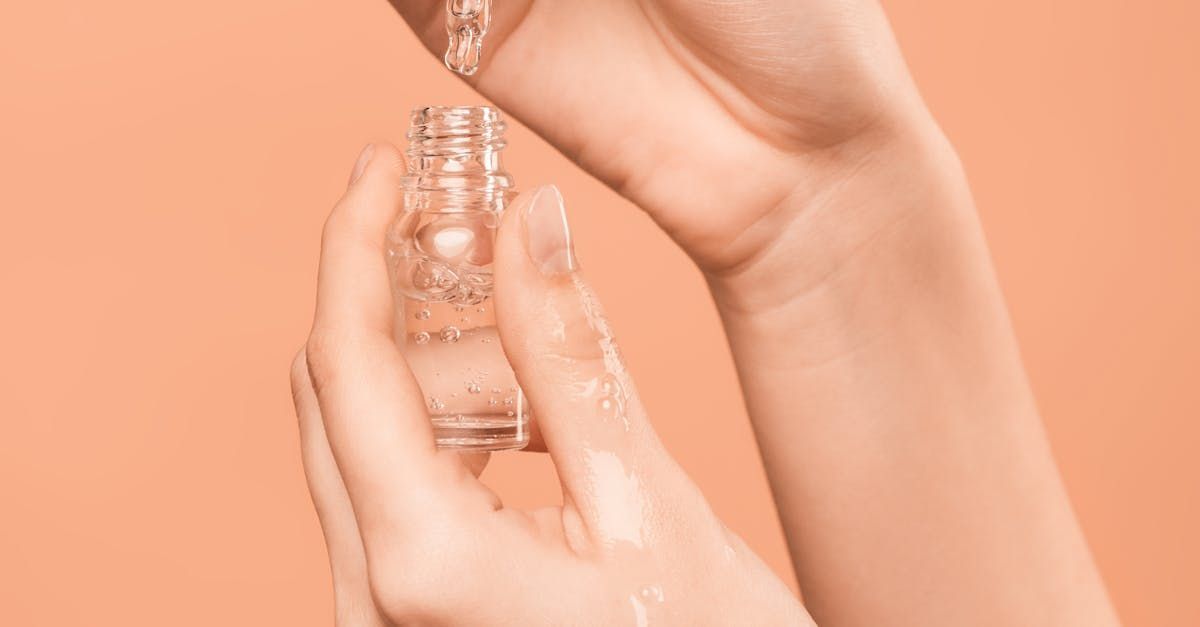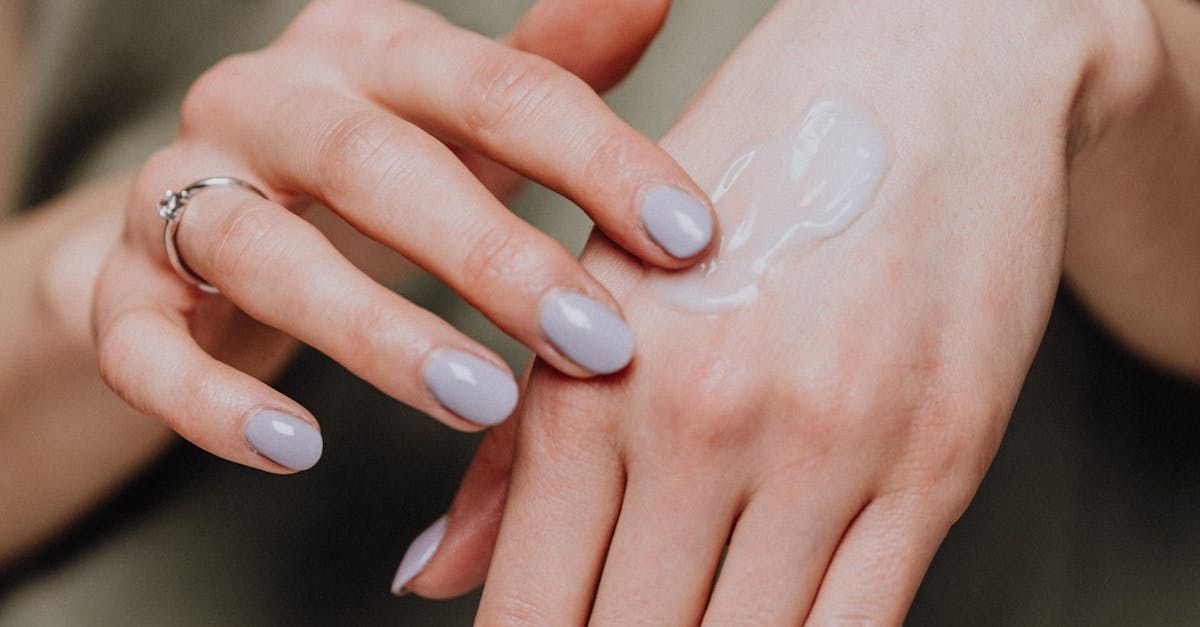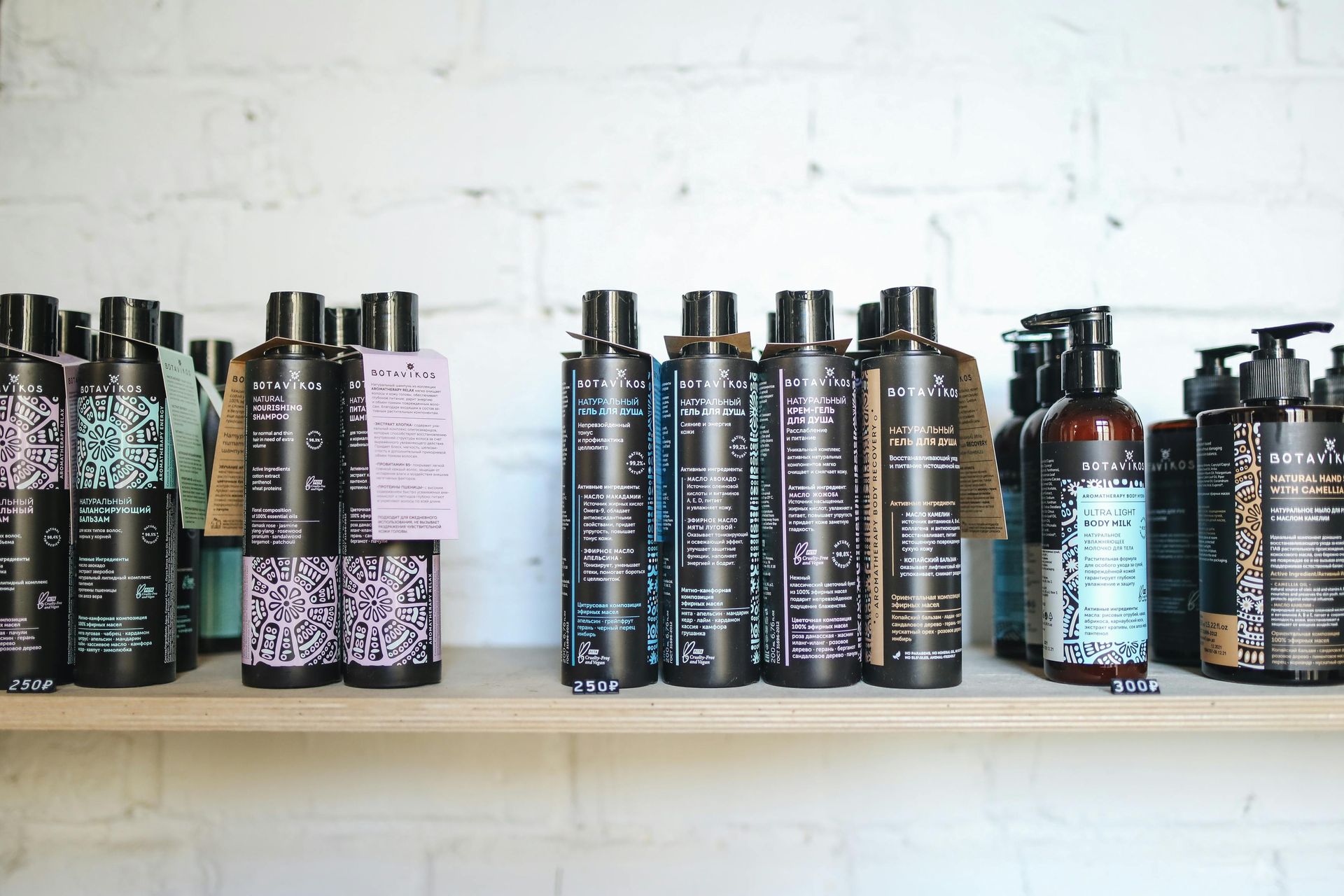Why Does My Moisturizer Burn?
We’ve all been there: you apply your moisturizer expecting smooth, hydrated skin, but instead, you feel an uncomfortable burning sensation.
What’s going on? Is it normal?
In this article, we’ll delve into the reasons why your moisturizer might be burning your skin and give you some tips to help you achieve the soothing, nourishing experience you deserve.
Whether it’s due to certain ingredients, skin conditions, or other factors, we’ve got you covered! Let’s dive in and uncover the mystery behind this common skincare issue.
Common Ingredients That Cause Burning
Moisturizers typically contain a couple of key ingredients, each having a specific purpose.
Let’s explore some common ingredients that might be behind this unpleasant surprise and how you can avoid them for a more comfortable skincare experience.
Alcohol-based Ingredients
Alcohol can be a double-edged sword in skincare. While it helps products absorb quickly and feels refreshing, it can also be very drying and irritating, especially for sensitive skin.
If your moisturizer contains high amounts of alcohol, it might be stripping away your natural oils, leaving your skin barrier compromised. This can lead to that stinging sensation we all dread. Opt for alcohol-free moisturizers to keep your skin happy and hydrated.
Fragrances and Essential Oils
They may smell divine, but fragrances and essential oils are common culprits for causing skin irritation and burning sensations. These ingredients can trigger allergies and sensitivities, leading to redness and discomfort.
Fragrance-free skincare is a safer bet for those with sensitive skin or conditions like eczema and rosacea. Always check the label and choose products labeled “hypoallergenic” to reduce the risk of irritation.
Acids (AHAs, BHAs, Retinoids)
Acids like alpha hydroxy acids (AHAs), beta hydroxy acids (BHAs), and retinoids are powerful skincare ingredients known for their exfoliating and anti-aging benefits. However, they can also cause burning and tingling, especially if your skin isn’t used to them.
These ingredients work by increasing cell turnover, which can initially irritate your skin. Start with lower concentrations and gradually build up to allow your skin to adjust.
Also, incorporating soothing skincare ingredients like aloe vera and chamomile can help calm any irritation.
Preservatives (e.g., parabens, formaldehyde-releasing agents)
Preservatives are essential for extending the shelf life of skincare products, but some can be harsh on the skin. Parabens and formaldehyde-releasing agents are known to cause allergic reactions and irritation in some people.
If you suspect these are causing your moisturizer burning sensation, look for products with gentler preservatives or those labeled as “paraben-free.”
Skin Conditions That Contribute to Sensitivity

Ever wonder why your skin seems to rebel against every product you try? The answer might lie in underlying skin conditions that crank up your skin’s sensitivity.
Eczema and Dermatitis
Imagine your skin as a fortress under siege!
Eczema and dermatitis are like invaders that cause red, itchy, and sometimes painful patches. They make your skin hyper-sensitive to skincare products, turning your moisturizer into a burning menace.
The key to defense? Use a sensitive skin moisturizer free from fragrances and packed with soothing warriors like aloe vera and chamomile. Always patch test new products – your skin will thank you.
Rosacea and Redness-Prone Skin
Rosacea is that pesky neighbor that won’t leave your face alone, causing persistent redness and visible blood vessels.
This condition makes your skin a ticking time bomb, ready to react to anything harsh. Alcohol in skincare products or strong acids? Big no-no!
Opt for a gentle skincare routine, specifically tailored for rosacea. Avoiding triggers like extreme temperatures and spicy foods can help. And hey, don’t shy away from seeking rosacea skincare advice from a dermatologist – they’re the skin experts, after all.
Allergies and Irritations
Allergies are the skin’s version of a drama queen, reacting dramatically to various ingredients. Fragrances, preservatives like formaldehyde-releasing agents – all potential culprits!
These allergies show up as redness, itching, and that dreaded burning sensation.
Go for hypoallergenic moisturizers and fragrance-free skincare to keep the peace. If an allergy is suspected, keep a skincare diary tracking your skin’s reactions. A dermatologist can offer personalized recommendations to navigate this skincare minefield.
Compromised Skin Barrier
Think of your skin barrier as a superhero cape that protects against environmental villains and locks in moisture. Over-exfoliation, harsh ingredients, and environmental stressors can tear this cape, leaving your skin vulnerable and sensitive.
A damaged skin barrier makes your skin more prone to burning and stinging. Restore your cape with gentle, hydrating ingredients. Ceramides, hyaluronic acid, and glycerin are your skin’s best friends for repairing and maintaining a healthy barrier.
How to Identify the Culprit Ingredient

The culprit might be lurking in the ingredients list. Let’s explore how you can pinpoint what’s causing that annoying skincare irritation and keep your skin happy!
Patch Testing at Home
Imagine being a skincare detective right in your own home! Patch testing is a simple yet effective way to identify if a specific product or ingredient is causing a reaction.
Apply a small amount of the product to a discreet area of your skin (like behind your ear or on your inner arm) and wait 24-48 hours. If you notice redness, itching, or a burning sensation, you’ve likely found the ingredient causing the problem.
This method helps you avoid full-face disasters and keep your skin calm.
Reading Ingredient Labels
Those tiny words on your skincare products hold the key to understanding what you’re putting on your skin. Ingredients causing skin burn, like alcohol in skincare products or certain acids, can often be spotted if you know what to look for.
Get familiar with common irritants such as parabens, formaldehyde-releasing agents, and fragrances.
Opt for fragrance-free skincare and hypoallergenic moisturizers to minimize risks. Knowledge is power, and a quick scan of the label can save your skin a lot of trouble!
Consulting a Dermatologist
Sometimes, you need a skin expert on your side. Dermatologists can provide invaluable insights into your skin’s unique needs and sensitivities.
They can perform professional skincare patch tests and recommend suitable products, from soothing skincare ingredients like aloe vera and chamomile to specific eczema moisturizer tips or rosacea skincare advice.
Don’t hesitate to seek dermatologist skincare recommendations if your skin issues persist. They can guide you through understanding retinoids side effects or AHA and BHA reactions and help you build a gentle skincare routine.
Keeping a Skincare Diary
Keep track of your skin’s reactions with a skincare diary. Note down every product you use and any reactions you experience.
Over time, patterns may emerge, revealing which ingredients your skin loves and which it hates. This tracking method is particularly useful for identifying skin allergies from cosmetics or environmental skin stressors that might be affecting you.
By monitoring your skin’s health, you can avoid ingredients to avoid in moisturizers and maintain a balanced skin pH.
Solutions and Alternatives for Sensitive Skin

One minute you’re enjoying a new product, the next you’re facing a moisturizer burning sensation.
Fear not, we’ve got solutions and alternatives to keep your skin calm and happy. Let’s dive into how you can soothe and protect your sensitive skin effectively.
Choosing Fragrance-Free Products
Fragrances in skincare products are one of the top culprits behind skin irritation. They might smell nice, but they can wreak havoc on sensitive skin.
Opt for fragrance-free skincare to reduce the risk of reactions. Look for labels that specifically state “fragrance-free” or “unscented.” This simple switch can prevent skincare irritation and help maintain your skin’s health.
Opting for Hypoallergenic Formulas
Hypoallergenic moisturizers and skincare products are formulated to minimize the risk of allergies and irritations. These products are free from common allergens and irritants, making them perfect for sensitive skin.
Whether you’re dealing with eczema, rosacea, or a compromised skin barrier, hypoallergenic options can be a lifesaver.
Remember, always do a skincare patch test before fully integrating a new product into your routine.
Incorporating Soothing Ingredients
Soothing ingredients like aloe vera and chamomile are your skin’s best friends. Aloe vera benefits for skin include its anti-inflammatory properties, which can help calm irritated skin and reduce redness.
Chamomile in skincare works similarly, offering a gentle touch that soothes and heals. Including these ingredients in your skincare routine can provide immediate relief and long-term benefits.
Look for products that highlight these calming ingredients to help prevent that dreaded moisturizer burning sensation.
Building a Gentle Skincare Routine
A gentle skincare routine is crucial for sensitive skin. Avoid over-exfoliation, which can strip your skin of its natural oils and lead to irritation. Stick to a simple regimen with a mild cleanser, a hydrating and hypoallergenic moisturizer, and sun protection.
Hydration for skin health is vital, so ensure you’re using products that keep your skin moisturized without causing irritation. Avoid harsh ingredients and focus on products that support your skin’s natural barrier.
Consult a Dermatologist
When in doubt, consult a dermatologist. They can provide personalized dermatologist skincare recommendations, help you understand your skin’s needs, and guide you in choosing the right skincare products.
They can also advise on soothing skincare ingredients and help manage any persistent issues you might face.
Tips for Preventing Moisturizer Burn

Nothing’s worse than expecting a soothing experience from your moisturizer, only to end up with a burning sensation instead! If you’ve been there, you know it’s not fun.
Let’s explore some friendly tips to prevent that pesky moisturizer burn and keep your skin happy and healthy.
Avoiding Over-Exfoliation
Over-exfoliation is like inviting a wrecking ball to a tea party. Sure, exfoliation is great for removing dead skin cells, but doing it too often can strip away your skin’s protective barrier, leading to irritation and a moisturizer burning sensation.
Stick to exfoliating once or twice a week with gentle products, and your skin will thank you. This will help maintain a healthy balance, keeping your skin smooth without overdoing it.
Introducing New Products Slowly
Excited to try out that new sensitive skin moisturizer? Hold on! Introducing new products too quickly can overwhelm your skin, especially if it contains potent ingredients. Start by patch testing the product on a small area of your skin.
Gradually incorporate it into your routine by using it every other day, and monitor for any signs of skincare irritation. Slow and steady wins the race!
Maintaining a Healthy Skin Barrier
Your skin barrier is like a fortress that protects against environmental stressors and locks in moisture. A compromised skin barrier can lead to increased sensitivity and burning.
To keep it strong, use fragrance-free skincare and hypoallergenic moisturizer options that are packed with soothing skincare ingredients like aloe vera and chamomile.
Avoid harsh ingredients like alcohol in skincare products that can further damage your barrier. Repairing a damaged skin barrier with ceramides and glycerin can make a world of difference.
Staying Hydrated and Protecting Your Skin from Environmental Stressors
Hydration for skin health isn’t just about what you put on your skin; it’s also about what you put in your body. Drink plenty of water and use a hydrating moisturizer to keep your skin plump and healthy.
Additionally, protect your skin from environmental stressors like pollution and UV rays by using a broad-spectrum sunscreen and following a gentle skincare routine. These steps help prevent skin allergies from cosmetics and keep your skin resilient.
Conclusion
Feeling a burning sensation from your moisturizer can be frustrating, but with the right knowledge and approach, you can find products that work harmoniously with your skin.
By understanding the common causes and making informed choices, you can achieve a comfortable and effective skincare routine.
If you have persistent issues, don't hesitate to seek advice from a skincare professional. Your journey to soothed and nourished skin starts here!
Frequently Asked Questions
Why does my moisturizer burn?
Certain ingredients like alcohol, fragrances, and acids (AHAs, BHAs, Retinoids) can cause irritation, especially on sensitive skin.
How can I identify which ingredient is causing my skincare irritation?
Perform a patch test at home, read ingredient labels carefully, consult a dermatologist, and keep a skincare diary to track reactions.
What are common skin conditions that make skin sensitive?
Eczema, dermatitis, rosacea, and a compromised skin barrier are common conditions that increase skin sensitivity and can lead to irritation.
What are the benefits of using soothing ingredients in skincare?
Ingredients like aloe vera and chamomile help calm irritated skin, reduce redness, and support the skin’s natural healing processes, making them ideal for sensitive skin.
What are some tips for preventing moisturizer burn?
Avoid over-exfoliation, introduce new products slowly, maintain a healthy skin barrier, and stay hydrated while protecting your skin from environmental stressors.
Related Posts
Disclaimer: The content provided in this blog post is for informational purposes only and is not intended as a substitute for professional medical advice, diagnosis, or treatment. Always seek the advice of your physician or other qualified health provider with any questions you may have regarding a medical condition. Never disregard professional medical advice or delay in seeking it because of something you have read on this blog.
You May Also Like
All Rights Reserved | Tu Colombia Online



